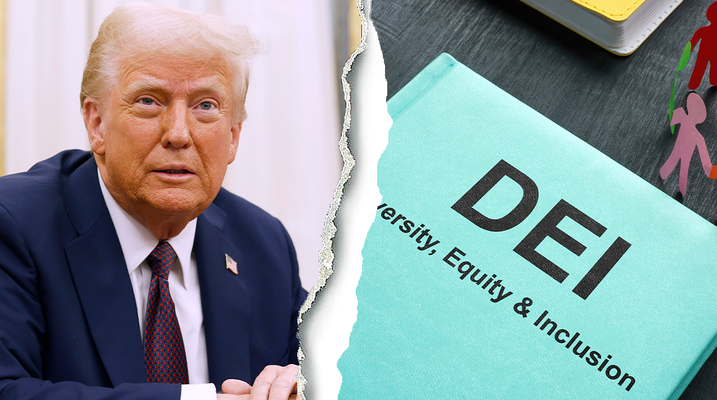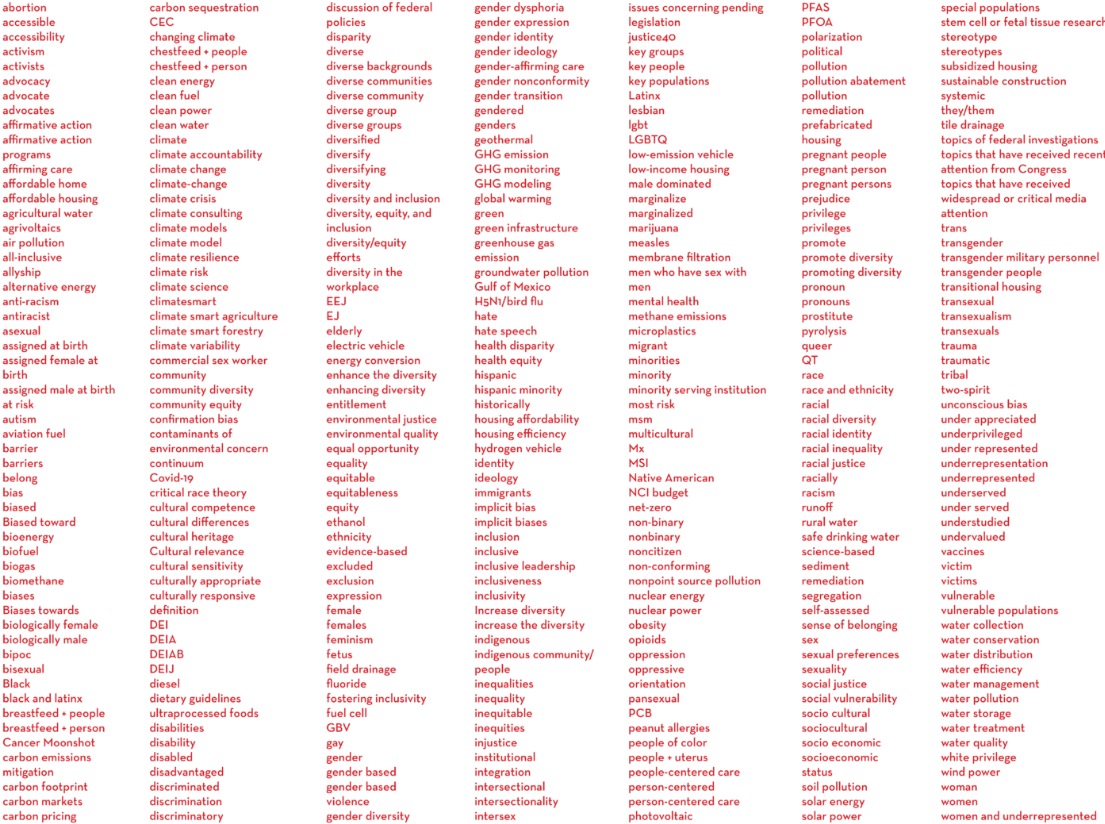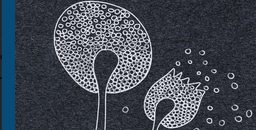Access Denied: The Silent Impact of Censorship on SDG 3
Published in Social Sciences, Research Data, and Sustainability

In an era where global health is still a big challenge to overcome and is becoming increasingly complex, the principle of access to quality healthcare for all is key for equitable progress. At the heart of this vision lies Sustainable Development Goal 3 (SDG 3): Ensure healthy lives and promote well-being for all at all ages. Yet as we strive toward this goal, recent developments in policy and discourse raise pressing questions about who truly has access to healthcare, to knowledge, and to representation.
Why Language Matters in Health Equity
Language is an important tool that helps instrument inclusion. In health research and publishing, the words we choose shape the populations we serve. Terms like ‘women’, ‘disability’, ‘gender’, and ‘DEI (Diversity, Equity, and Inclusion)’ are not just descriptors; they are used to state the validation of certain communities and show that they exist, matter, and deserve tailored health interventions.
However, recent reports of federal agencies and institutions restricting the use of such terms in official documents and research proposals are deeply concerning. When language is censored, so too are the realities of those it represents. This undermines the very essence of SDG 3, which calls for universal access to health services, regardless of identity or circumstance1.
The Rise of Linguistic Censorship
In a sweeping and increasingly alarming trend, U.S. federal agencies and academic institutions have begun restricting or flagging the use of over 350 terms, including:
- Climate change
- Abortion
- Disability
- Native American
- Women
- DEI

Academic institutions such as the National Science Foundation and NIH are now scanning course materials and websites to remove flagged terms to comply with federal and state mandates. Researchers reliant on federal funding are increasingly pressured to avoid certain language to secure grants and publication 2.
The Chilling Effect on Public Health and Research
These restrictions are having a profound impact on:
Public health: Key datasets have been taken offline, and grants cancelled midstream. Over 4500 NIH grants have been terminated and more than $750 million in funding withheld3,4.
Scientific integrity: Publications could get heavily delayed or rewritten to comply with political constraints5.
Academic freedom: Professionals must now navigate a landscape where mentioning “racial disparities” or “underserved communities” can jeopardise funding 6.
The Gaps We Must Address
Despite global commitments, access to healthcare remains uneven. Marginalised groups such as women, LGBTQ+ individuals, people with disabilities, and ethnic minorities often face systemic barriers to care. These include:
- Limited representation in clinical research
- Cultural and linguistic barriers in service delivery
- Underfunded health programs targeting specific communities
DEI frameworks have identified and addressed systemic gaps in gaps in healthcare by ensuring that health systems are inclusive and responsive to diverse needs. Removing DEI from the conversation risks erasing these efforts and reversing the meaningful progress that has been achieved so far.
How Language Bans Undermine SDG 3 and Global Health Equity
The Trump Administration’s push to restrict inclusive language in federally funded research doesn’t just affect U.S. institutions, as this will send ripples across the global scientific and publishing communities. SDG 3 is built on the premise that health is a universal right. However, when governments dictate which populations can be named, studied, or supported, that right is compromised.
By banning or discouraging terms, these policies:
Obscure health disparities: If researchers cannot explicitly refer to gender, race, or disability, they cannot accurately describe or address the health inequities these groups face.
Distort research priorities: Funding bodies may deprioritise studies that focus on marginalised populations, skewing the scientific agenda away from those most in need.
Erode international collaboration: Global health research often relies on U.S. partnerships and funding. When U.S. policies restrict inclusive language, international researchers may feel pressured to conform, diluting the global commitment to equity.
Undermine evidence-based policy: Policymakers rely on clear, inclusive data to design effective interventions. Sanitising language weakens the evidence base and leads to less effective, less targeted public health responses.
In essence, these language bans are not just semantic they are structural. They create blind spots in our understanding of health, silence vulnerable communities, and weaken the global effort to achieve SDG 3. For publishers, researchers, and institutions committed to “Access for All,” this is a moment to reaffirm our values and resist the erasure of equity from the scientific record.
Publishing as a Platform for Equity
As someone working in academic publishing, I see firsthand how editorial decisions influence the visibility of health issues. Publishers have a responsibility to uphold inclusive practices through diverse authorship, equitable peer review, and open access policies that share knowledge.
Springer Nature have made explicit commitments to diversity, equity, and inclusion, including guidance on inclusive language, sex and gender equity in research, and territorial neutrality 7–9. These policies are designed to ensure that research reflects the diversity of the global population and adheres to international standards of responsible publishing.
However, growing political pressure to avoid certain terms, especially in federally funded research, could create tension between editorial integrity and funding compliance. If researchers begin self-censoring to secure grants, or if institutions discourage inclusive terminology, publishers may face a narrowing of the research landscape. This could lead to:
- Fewer submissions addressing marginalised populations
- Reduced visibility of health disparities
- Challenges in upholding inclusive editorial policies
Publishers must continue to advocate for inclusive scholarship, even as external pressures mount. Upholding access for all means defending the right to name and address inequity without compromise.
A Call to Action
To truly achieve SDG 3, we must protect the integrity of inclusive health discourse. This means advocating for the use of inclusive language in research and publishing, supporting open access initiatives that expand the reach and impact of health knowledge, and elevating voices from underrepresented communities within health literature. “Access for All” is a commitment to visibility, equity, and justice. Every word we choose to publish should bring us closer to a world where health and well-being are not privileges reserved for a few, but fundamental rights guaranteed to all.
References
1. Unspoken, Unseen, Untreated: The Public Health Cost of Language Censorship - California Association of Healthcare Leaders. https://ache-cahl.org/jedi/unspoken-unseen-untreated-the-public-health-cost-of-language-censorship/?__cf_chl_tk=2bt8MyH4HHbAf45TnmjgFIQxOqZ8QWvp0PKn4XqnJuw-1754492020-1.0.1.1-xzKWmQm9NHL6TZjWHTNmykNYgqaBBrOBP4YmON6K1l4.
2. Federal Government’s Growing Banned Words List Is Chilling Act of Censorship - PEN America. https://pen.org/banned-words-list/.
3. The Scientific Research Lost Amid the Trump Administration’s NIH Cuts — ProPublica. https://projects.propublica.org/nih-cuts-research-lost-trump/.
4. The Trump Administration’s Continued War Against Science, Research and Public Health – LLRX. https://www.llrx.com/2025/07/trump-administrations-continued-war-against-science-research-and-public-health/.
5. The Chilling Effect of DEI Crackdowns in Scientific Publishing. https://undark.org/2025/05/14/dei-crackdown-scientific-publishing/.
6. The Silent Struggle: How Political and Financial Pressures Are Undermining Academic Freedom | The EduTimes. https://edutimes.com/news/2025/03/20250319331.
7. Diversity, Equity and Inclusion | Springer Nature | Springer Nature Group | Springer Nature. https://group.springernature.com/gp/group/taking-responsibility/diversity-equity-inclusion.
8. DEI data and resources for editors: Promoting inclusion and representation in journals | Editors | Springer Nature. https://www.springernature.com/gp/editors/resources-tools/dei-for-editors.
9. Heidari, S., Babor, T. F., De Castro, P., Tort, S. & Curno, M. Sex and Gender Equity in Research: rationale for the SAGER guidelines and recommended use. Res Integr Peer Rev 1, (2016).


Please sign in or register for FREE
If you are a registered user on Research Communities by Springer Nature, please sign in